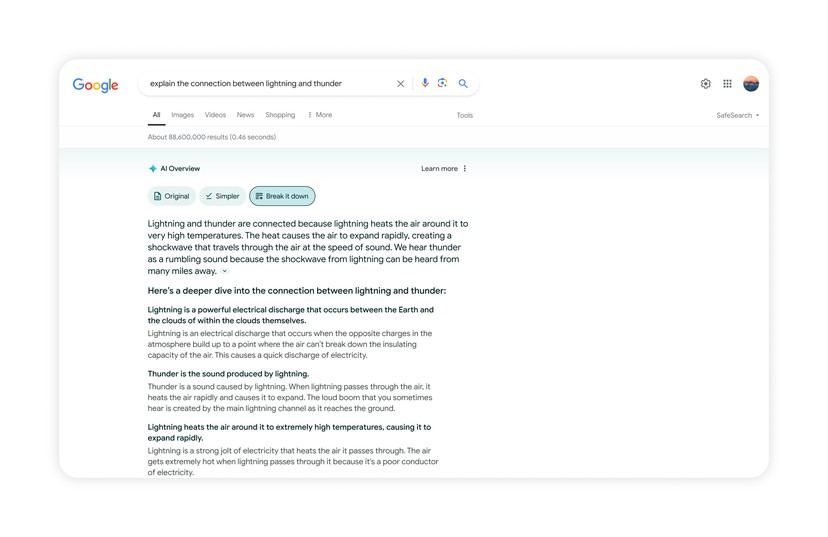A year ago, Google declared AI as the future of search, and now that future is here. Google is rolling out “AI Overviews,” previously called the Search Generative Experience (SGE), to users in the US, with plans for global release soon. This means billions of users will see AI-generated summaries at the top of many search results, marking the beginning of AI’s impact on search.
Liz Reid, Google’s new head of Search, explains that generative AI allows Google to handle more of the search process. It can simplify the hard work of searching, enabling users to focus on getting things done or exploring what interests them.
Google announced several features at its I/O developer conference to achieve this. AI Overviews provide a general sense of the answer to a query with links for more information. A new Lens feature allows video-based search. There’s a planning tool that can generate trip itineraries or meal plans from a single query. Additionally, AI-powered organization of the results page can offer recommendations for different contexts, like date nights or business meetings.
This comprehensive integration of AI into search uses Google’s Gemini AI to understand queries, whether typed, spoken, captured in a picture, or video. A specialized Gemini model summarizes the web and presents answers, even designing and populating the results page.

However, not every search requires such extensive AI. For simple queries like navigating to a URL, AI might not be necessary. Reid believes Gemini is most beneficial for complex queries that would typically require multiple searches or are not usually directed to Google. For instance, local search is a tricky area where AI can shine, such as finding highly-rated yoga or Pilates studios within a specific area.
Combining Google’s Knowledge Graph with AI is crucial for Reid and her team. For straightforward queries like sports scores, the existing system works well, but Gemini enhances the ability to understand and respond to varied queries. Ensuring accuracy is paramount, so the new Gemini model is focused on factuality over creativity, aiming to provide reliable AI Overviews.

AI in search faces challenges, including potential false information. Products like Perplexity and Arc have faced criticism for summarizing content without proper attribution. Google aims to balance this by sometimes avoiding AI Overviews and ensuring more clicks to the open web. Reid believes this approach will highlight valuable content and maintain user engagement, especially among younger users who seek human perspectives.
Google’s goal over the past decade has been to transform search from a simple keyword box to an all-encompassing tool that understands natural queries and provides helpful responses in various formats. This evolution aims to encourage more user interaction, ultimately benefiting both Google and its users. The future of search promises less typing, fewer tabs, and more natural interactions with search engines.
